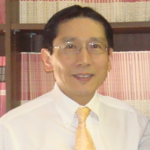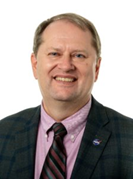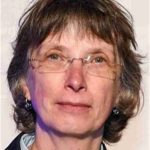 |
Chair:
Tom K. Hei (USA), 2022 – 2026*
|
 |
Vice-Chair:
Giorgio Baiocco (Italy), 2022 – 2026
|
 |
Vice-Chair:
John Kiss (USA), 2022 – 2026 (jzk – at – fit.edu)
|
 |
Vice-Chair:
Petra Rettberg (Germany), 2022 – 2026 (Petra.Rettberg – at – dlr.de)
|
 |
Vice-Chair:
Yeqing Sun (China), 2022 – 2026*
|
Intercommission/Panel/Task Group Liaisons:
PCB: Giorgio Baiocco (Italy), 2022 – 2026
PEX: Guenther Reitz (Germany), 2018 – 2024*
Terms of Reference:
(1) Effects of extraterrestrial environments on living systems including: (a) biological effects of changes in gravitational forces and/or of the radiation environment in space, especially of the heavy ions of cosmic radiation; (b) biological and medical studies of human beings in spaceflight, life support systems, radiation risk estimations, and nutritional problems in space; and (c) Earth-based studies of effects of extreme environments on biological systems.
(2) Origin and evolution of life, including: (a) chemical precursors of life, its evolution and present state within the solar system and beyond; (b) search for extraterrestrial intelligence, for life in the solar system beyond the terrestrial biosphere, and for molecules of biological significance in space. Biological interchange, including: (a) possible effects of contamination of planets other than the Earth, and of planetary satellites within the solar system by terrestrial organisms; and (b) contamination of the Earth by materials returned from outer space carrying potential extraterrestrial organisms that have been exposed to space environments.
(3) Mechanisms and dynamics of ecosystems, including: (a) the natural ecosystem on Earth as it can be observed, charted and analyzed from space; and (b) artificial ecosystems, which are being developed for use in human life support in space or on other celestial bodies, such as Moon or Mars.
Sub-Commission F1: Gravitational and Space Biology
Chair:
Eugénie Camero Diaz (France), 2022 – 2026 |
|
Vice-Chair:
Isabel Le Disquet (France), 2022 – 2026 |
|
Terms of Reference
The objective is to provide a broad framework for gravitational biology, particularly with reference to spaceflight, applicable to humans, animals, and plants, including microorganisms and cell preparations. The terms of reference include: spaceflight low-G effects; effects of ground-based low-G simulation; gravity perception and orientation; gravity scale effects; centrifuge high-G effects; vibration effects.
Back to top
Sub-Commission F2: Radiation Environment, Biology and Health
Chair:
Livio Narici (Italy), 2022 – 2026* |
|
Vice-Chair:
Guangming Zhou (China), 2022 – 2026* |
|
Terms of Reference
Biological response to cosmic solar particle and geometrically trapped radiation, including: biological effectiveness of the hard component of cosmic radiation (HZE particles and nuclear disintegration events); influence of external factors (weightlessness and environmental stress) on radio-biological processes; radiation risk and protection in solar particle events; dosimetry in manned spaceflight; radiation standards and radiation protection in manned spaceflight.
Back to top
Sub-Commission F3: Astrobiology
|
Chair:
Claudia Pacelli (Italy), 2022 – 2026
|
|
Vice-Chair:
Keyron Hickman-Lewis (United Kingdom), 2022 – 2026 |
|
Terms of Reference
The study of: the pathway (chemical) by which life may have arisen – extraterrestrial organic chemistry, chemical evolution; the early geological record (pre-Cambrian) as it pertains to the origin and early evolution of life; the interaction of life with the planet in physical-chemical and evolutionary terms, terrestrial life forms in unusual and extreme environments; and finally, the search for life (including intelligence) in the universe. Also includes development of planetary protection plans in solar system exploration and sample return missions.
Back to top
Sub-Commission F4: Natural and Artificial Ecosystems
Chair:
Lucie Poulet (France), 2024 – 2028 |
|
Vice-Chair:
Cyprien Verseux (Germany), 2024 – 2028 |
|
Terms of Reference
The scope of activities includes studies of natural ecosystems particularly in the areas of system evolution, system control and environmentally induced system function changes; of artificial ecosystems, particularly in areas that will aid in understanding natural systems, that will contribute to developing life support systems for use in space, and that will aid in understanding extraterrestrial ecosystems. Activities of interest also include ecosystem observations from space, the behavior of experimental ecosystems functioning in space, the recycling of waste and production of consumables in isolated ecosystems, evaluation and integration of bioregenerative technologies and life support systems with space missions, and the monitoring and control of life support systems and components.
Back to top
Sub-Commission F5: Gravitational Physiology in Space
Chair:
Elizabeth Blaber (USA), 2022 – 2026 |
|
Vice-Chairs:
Xiao (Vivien) Mao (USA), 2022 – 2026 |
|
Terms of Reference
The objective of Sub-Commission F5 is to expand the understanding of basic physiological mechanisms attributable to microgravity including: an integrated approach to examine the effects of space flight conditions on the human body, providing insights into the complex interactions of the human body functions applicable and beneficial for human health care on Earth, development of countermeasures for safeguarding astronauts health and beneficial for aging people or patient groups on Earth. The terms of reference include: effects of space flight; simulation studies like head-down bed rest or water immersion; examination of comparable patient groups.
Back to top
* (after officer term) = second and final term in the office indicated